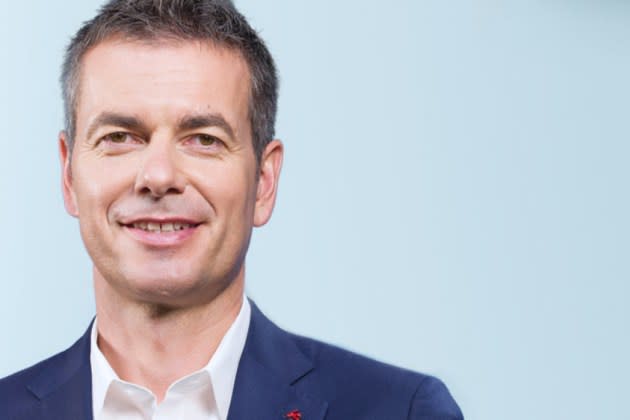Warner Music Joins Deezer’s New ‘Artist-Centric’ Royalty Model

As the music industry explores an updated, more artist-friendly model for streaming royalties, Warner Music has joined Universal in adopting a new “artist centric” model with Deezer in the streaming company’s home country of France. The arrangement has been in effect since Oct. 1, sources confirm to Variety.
Broadly speaking, the goal is to reward artists who are genuinely most popular on the service, and who draw listeners to it — for example, if someone were to go straight to the service and actively searches for a specific artist rather than allowing an algorithm to lead them to something.
More from Variety
Deezer Raises Subscription Prices For the Second Time in 12 Months
Universal Music Group and Deezer to Launch New, 'Artist-Centric' Streaming Payment Model
French Streaming Service Deezer's Stock Plunges in Public Debut on Paris Exchange
Warner Music France President Alain Veille said in an interview with Les Echos (as reported by Music Business Worldwide), “As we’ve consistently said, we’re committed to working with the streaming platforms to evolve business models to better reflect the value and fan engagement driven by artists, songwriters, and their art.
“So we are delighted to partner with Deezer on this artist-centric model which rewards engaging music and demonetizes non-artist noise. Our new deal will benefit creative talent at all stages of their careers and support our ability to invest in the next generation.”
Three main facets of the arrangement include:
1. Artists who accrue more than 1,000 plays a month from more than 500 unique listeners on Deezer will receive a “double boost” in their streams on the service;
2. That “double boost” doubles again if a play of an artist’s music has been actively searched;
3. Deezer will “replace non-artist noise content” on its platform with its own functional music, and de-monetize all noise content. This represents an effort to steer more of the royalty pool toward musicians rather than non-musical content like the oft-cited “rain falling on a rooftop.”
As streaming has taken hold over the past decade, artists and songwriters have clamored for a more equitable share of the royalties generated by what is now the overwhelming source of music consumption. The current models were adopted back at the dawn of the music-streaming age, when revenue was so low that there was little difference between, say, 12% and 15% of royalties. But as streaming has become a multi-billion-dollar global business, the need for a more fair model has become clear. In tandem with designing new, “artist-centric” models, streaming services have also finally raised prices and seem likely to raise them further — despite initial resistance from market-leader Spotify in particular, studies show that listeners view streaming as a bargain and are willing to pay more.
However, sources confirm to Variety that Spotify is making major changes to its payment model that will address concerns similar to the ones in Deezer’s model, particularly regarding minimum stream levels and noise content.
Warner Music CEO Robert Kyncl said on the company’s earnings call in May, “It can’t be that an Ed Sheeran stream is worth exactly the same as a stream of rain falling on the roof….Now that the industry is healthy and has grown incredibly well, it’s time to re-evaluate how we’re licensing to DSPs, and to [change the model] together with them.”
In January, UMG CEO Lucian Grainge signaled the coming change by writing to the company’s staff in an email obtained by Variety, “We need a model that supports all artists — DIY, indie and major. An innovative, ‘artist-centric’ model that values all subscribers and rewards the music they love. A model that will be a win for artists, fans, and labels alike, and, at the same time, also enhances the value proposition of the platforms themselves, accelerating subscriber growth, and better monetizing fandom.”
Best of Variety
Sign up for Variety’s Newsletter. For the latest news, follow us on Facebook, Twitter, and Instagram.

